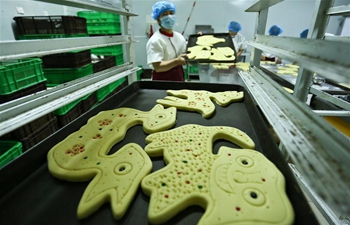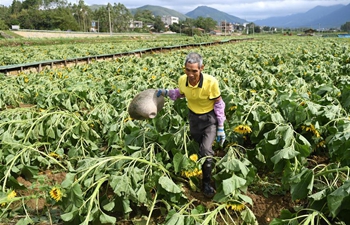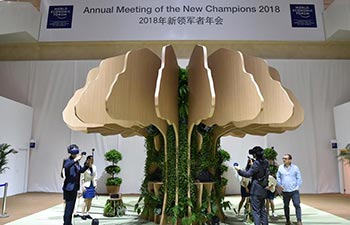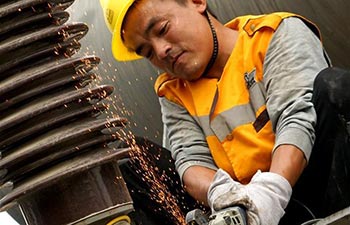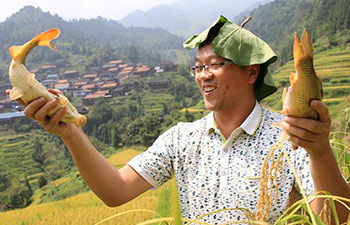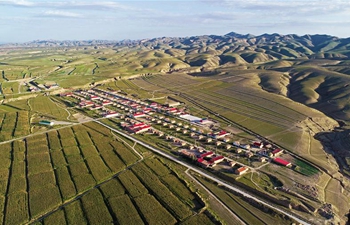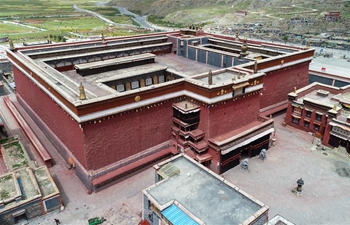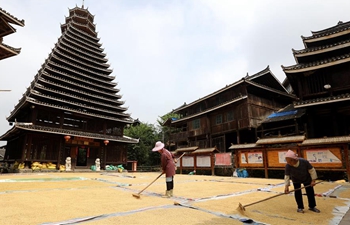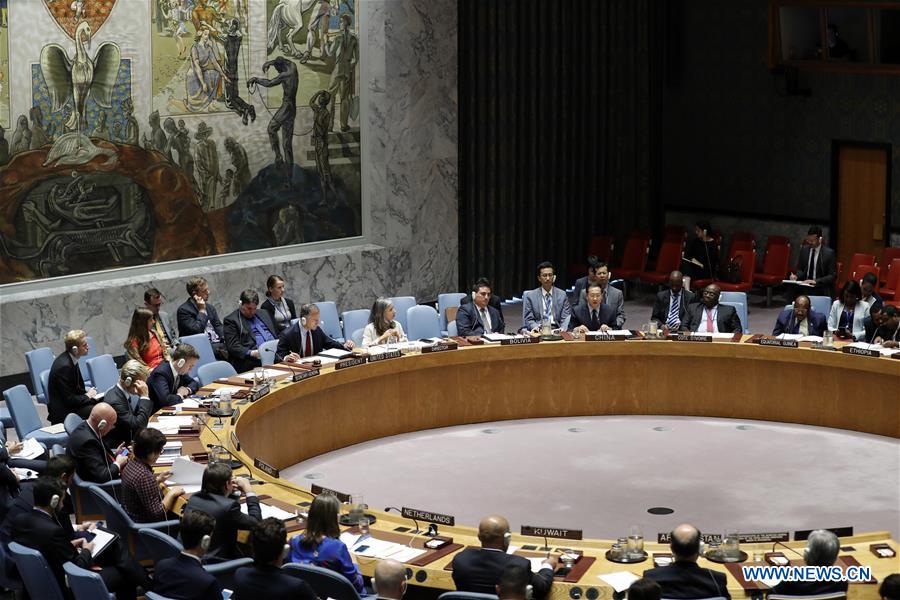
Photo taken on Sept. 17, 2018 shows a general view of the United Nations Security Council meeting on the situation in Afghanistan at the UN headquarters in New York. The top UN envoy in Afghanistan voiced concern on Monday about political challenges that he said might derail the parliamentary elections in the war-torn country next month. (Xinhua/Li Muzi)
UNITED NATIONS, Sept. 17 (Xinhua) -- The top UN envoy in Afghanistan voiced concern on Monday about political challenges that he said might derail the parliamentary elections in the war-torn country next month.
"Operationally and technically, the preparations are on track. Yet I remain very concerned that political challenges could jeopardize the tight timelines and derail the elections unless all political leaders engage constructively and peacefully to ensure that elections are held on time," Tadamichi Yamamoto, the UN secretary-general's special representative for Afghanistan, told the Security Council.
From a technical point of view alone, elections are possible, he said. "Candidates lists were finalized in time to enable the printing of the ballots to meet the deadline. The recruitment of the election officials is on track. The Independent Election Commission (IEC) announced that more than 9 million had registered to vote."
Many opposition parties, however, remain skeptical about the number of registered voters, citing both security concerns that would have prevented many people from registering and alleging fraud, said Yamamoto, who is also head of the UN Assistance Mission in Afghanistan (UNAMA).
Several safeguards for the verification of the voters list and fraud prevention measures are being put in place. Despite these measures, skepticism remains, he said.
Over the last few days, supporters of a coalition of political parties started to block several provincial election commissions demanding that additional safeguards be put in place.
"These actions hinder the work of the IEC and jeopardize the holding of the elections on time. Political concerns must be addressed through institutional mechanisms and not through blockades," said the UN envoy.
The parliamentary elections will undoubtedly be a major test for Afghanistan's young democratic institutions, he said.
Almost one third of Afghanistan's over 7,000 polling centers could not open due to insecurity. This is raising concerns about inclusivity, he said.
Yamamoto reminded Afghan political actors that continued international support is not something to be taken for granted. International support hinges on the continuation of the constitutional order in the country, he said.
He urged all political actors and institutions to perform their duties, act responsibly, and to think of the Afghan people, bearing in mind the country's bitter past.
"At this critical juncture the Independent Election Commission, as the lead institution on elections, will be looked upon to discharge its function with the highest degree of integrity, professionalism and with full accountability to the Afghan people. Afghan institutions and political leaders have the shared responsibility for the success of the elections."
UNAMA will do everything possible within its mandate and with the resources available to support a successful electoral process, said Yamamoto.
The UN envoy also expressed concern over the security situation in Afghanistan.
In the first six months of 2018, UNAMA recorded the highest number of civilian deaths since the mission started to track civilian casualties, he said. "In recent weeks we have also seen a continuation of the disturbing pattern of attacks targeting the Shi'a Muslim community. Each death is an individual tragedy. But it is also a tragedy for the country: reconciliation becomes harder with each life lost."
Insecurity is also taking its toll on journalists and aid workers. he said.
This year alone, 13 journalists have lost their lives and many more were injured. This is the highest number of deaths in any country. Also this year, 23 aid workers have lost their lives, 37 have been injured, and 74 have been abducted, making Afghanistan the second most dangerous country in which this profession conducts its work when 2.2 million people are suffering from the country's worst drought in years.
On the positive side, Afghan President Ashraf Ghani's offer in February this year to the Taliban to engage in talks without preconditions has created unprecedented political space for peace, culminating in the temporary cease-fire in June, he said.
It showed that reconciliation was possible. This newfound momentum was further supported by numerous citizen mobilizations, demonstrating the desire for a peaceful future. The second cease-fire in August, proposed by the government, was unfortunately not reciprocated by the Taliban, he said.
"But peace processes rarely move along straight lines. ... Whatever setbacks may lie ahead, we are in a better position now than at any time in the past 17 years to commence the process which would lead to talks for a negotiated end to the conflict."
The most difficult phases lie ahead. It will require resilience and persistence by all sides. The efforts of the Afghan government, which we hope would be reciprocated by the Taliban, need to be reinforced by a coordinated approach of the regional and other key countries to move forward, said Yamamoto.
